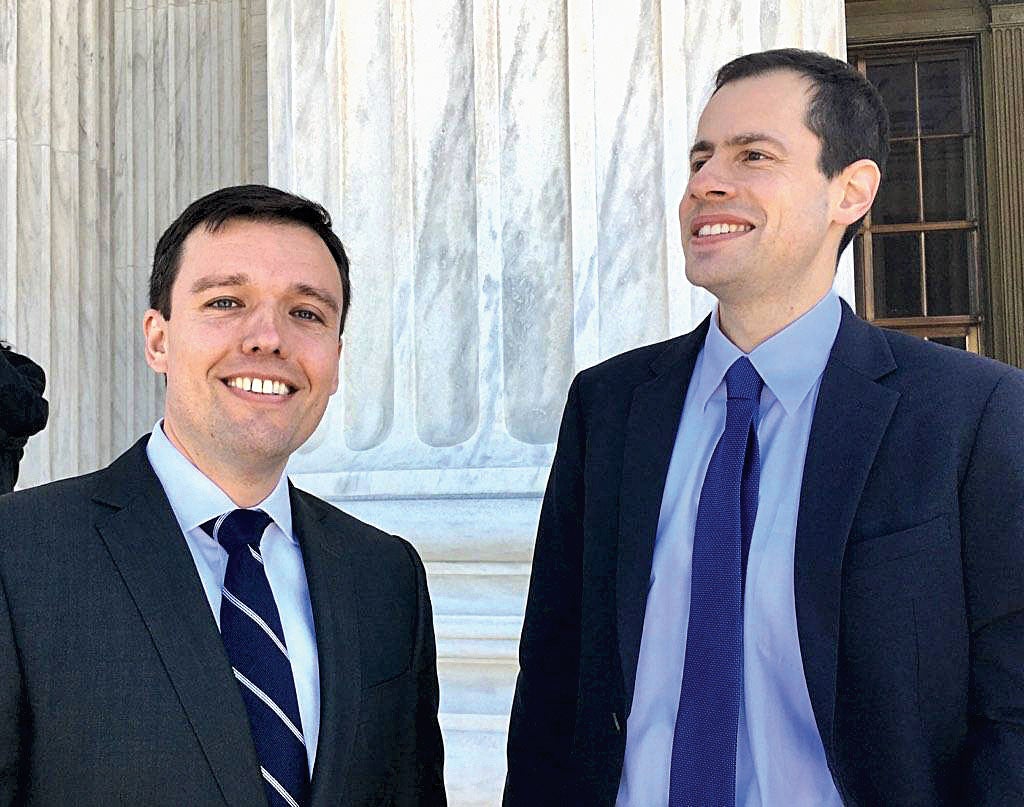Noah Purcell ’07 and Adam Unikowsky ’07 first met in the fall of 2004 as 1L sectionmates. Fourteen years later, they met again as adversaries arguing before the U.S. Supreme Court.
In the years in between, they served together as Harvard Law Review editors and both went on to clerk on the D.C. Circuit and Supreme Court before beginning their careers in Washington, D.C.
Their professional paths diverged when Purcell moved back home to Seattle, where he worked for a law firm and then was appointed Washington state’s solicitor general in 2013. Unikowsky remained in D.C., building an appellate and technology litigation practice at Jenner & Block, where he’s a partner. He has argued—and won—six Supreme Court cases, including three during a 28-day period in 2017. (The justices ruled in his client’s favor based on paper filings in a seventh case.)
In October, Unikowsky returned to the Court for the eighth time for a case involving federal Indian tribal law. He argued on behalf of a Yakima, Washington-owned fuel distribution business that an 1855 treaty guaranteeing the Yakama tribe the right to “travel upon all public highways” pre-empted a state fuel tax requirement.
Purcell defended the law as Washington’s solicitor general, a job in which he’s better known for bringing the state’s challenge to President Donald Trump’s first executive order limiting travel to the U.S. by citizens of seven countries. He had argued before the justices for the first time in another case involving Indian treaties last April. (That case ended in a 4-4 tie.) He said it’s “definitely less nerve-racking the second time—still nerve-racking, but less so.”
Purcell realized they’d be on opposite sides in the Yakama treaty case in August, when Unikowsky sent him an email about getting an extension.
“I thought it was a great coincidence and an interesting example of different career paths that would meet back at the Supreme Court,” Purcell said.
“Noah has a very impressive record and it’s a pleasure to go against such a skilled lawyer,” said Unikowsky. The argument itself proved, as expected, to be a low-profile affair. Reading the tea leaves afterward, SCOTUSblog noted that “age was a (somewhat) better predictor of leaning” than “familiar progressive-conservative divide.” The younger justices showed more sympathy for the tribe’s positions while several of the older ones seemed more sympathetic to the state’s.
“The issues don’t necessarily break along the lines people often think of,” Purcell said. “You don’t go in knowing how anyone is going to approach it. It’s very interesting that way.”
